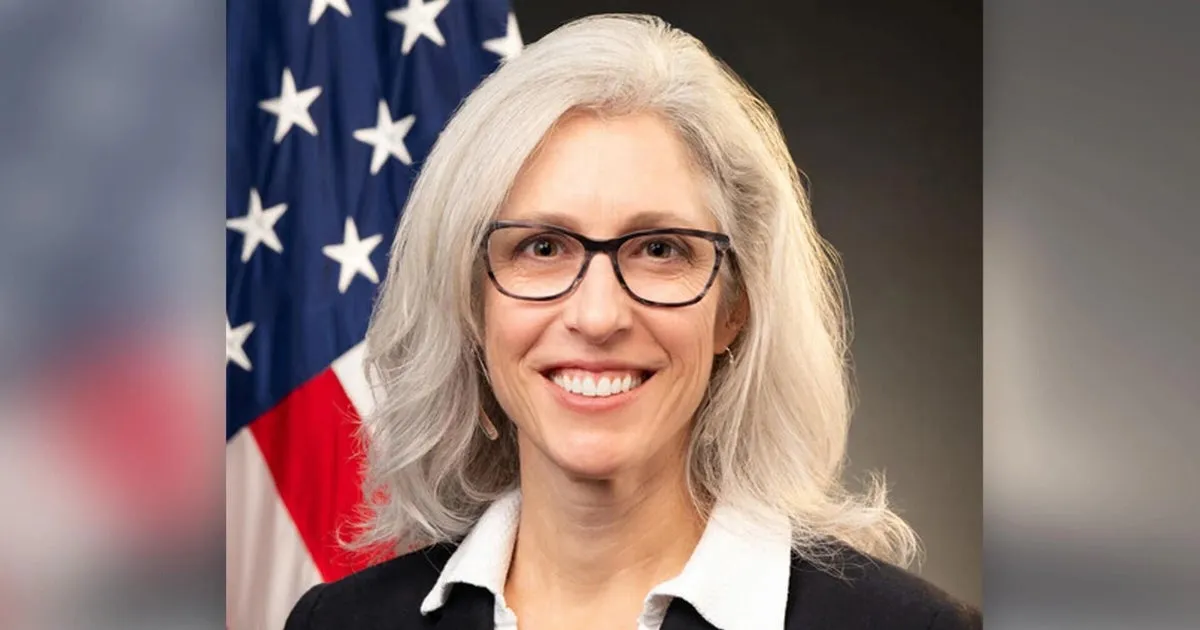
On Tuesday, the U.S. Senate voted along party lines, confirming Susan Monarez as the new director of the Centers for Disease Control and Prevention (CDC). The final vote was 51 to 47, following President Trump's nomination of Monarez for the role in March. During the nomination, the President praised her as an "incredible mother" and a "dedicated public servant" who recognizes the significance of protecting our children, communities, and future.
Before her confirmation, Monarez served as the acting head of the CDC since January. She previously held the position of head at the Advanced Research Projects Agency for Health. Notably, Monarez was seen as a surprising choice for the CDC role, as she holds a Ph.D. but is not a medical doctor, a departure from the backgrounds of most recent CDC directors. The CDC has highlighted her extensive experience in health innovation, disaster preparedness, global health, and biosecurity, asserting that she will be instrumental in advancing the mission to Make America Healthy Again.
Monarez's confirmation hearing took place before the Senate's Health, Education, Labor and Pension (HELP) committee on July 9. She received commendations from Republican Chairman Sen. Bill Cassidy, a physician, who acknowledged her commitment to rebuilding public trust in the aftermath of the COVID-19 pandemic. Conversely, Democratic committee members challenged her regarding the implications of federal funding cuts for health programs and medical research, expressing concerns about the CDC's operational role under Health and Human Services Secretary Robert F. Kennedy Jr..
One of the central topics during the hearing was Monarez's position on vaccines. Kennedy, known for his long-standing criticism of vaccines and his promotion of discredited theories linking routine childhood vaccinations to autism, raised concerns during the discussion. Monarez categorically refuted these claims, stating that she has not observed any causal connection between vaccines and autism. In light of a growing measles outbreak this year, Kennedy acknowledged the vaccine's effectiveness against the disease while still advocating for individual choice.
During her hearing, Monarez emphasized her commitment to science, saying, "If I'm confirmed as CDC director, I look forward to supporting the secretary with science and evidence, and making sure that I am giving him the best information possible." She underscored the importance of preventing and mitigating measles, stating, "Measles is an important health threat, and we have to make sure we are doing everything we can to prevent and mitigate it." Furthermore, Monarez assured the committee of her dedication to ensuring the continued availability and affordability of vaccines, despite potential changes from the CDC's vaccine advisory panel.
Fluoride, another topic emphasized by Kennedy, was also addressed during Monarez's confirmation hearing. This year, Utah and Florida became the first states to ban fluoride in drinking water, despite its long-standing use to prevent tooth decay. Monarez asserted, "Fluoride is an important component of oral health," and acknowledged the various methods of using fluoride to improve dental health. When Democratic Sen. Angela Alsobrooks from Maryland inquired about the safety of fluoridated water in Potomac, Monarez confidently affirmed, "I believe the water in Potomac, Maryland, is safe."
Throughout the hearing, senators repeatedly questioned Monarez about her potential interactions with Kennedy regarding public health decisions. Democratic Sen. Maggie Hassan of New Hampshire expressed concern about the necessity for the CDC director to maintain independence, stating, "The CDC director can't perform this critical role unless they are politically independent." Monarez responded by expressing her eagerness to engage in technical discussions with the Secretary, emphasizing her role as an independent thinker and scientist. She affirmed her commitment to base her opinions on scientific evidence.
When pressed by Hassan about whether she disagrees with any of Kennedy's actions, Monarez's response was non-committal. The senator further probed about Kennedy's assertion that measles is less likely to be fatal for healthy individuals, referencing the tragic deaths of two children during the current measles outbreak in West Texas. Monarez reiterated the message that measles is a significant public health threat that can indeed be deadly.
Overall, Susan Monarez's confirmation marks a pivotal moment for the CDC as it faces ongoing public health challenges and strives to regain the trust of the American public in its guidance and initiatives.